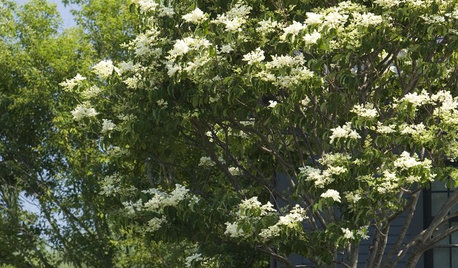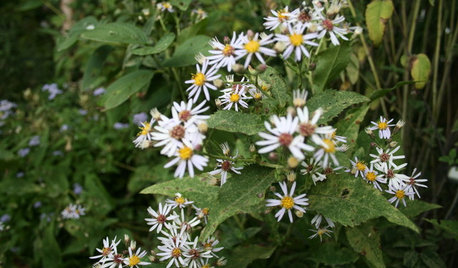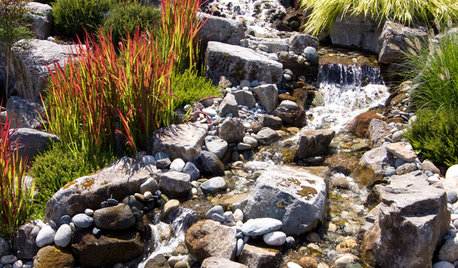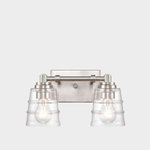Do dried greens become browns, and other newbie questions
sahira
17 years ago
Related Stories

GREEN BUILDINGConsidering Concrete Floors? 3 Green-Minded Questions to Ask
Learn what’s in your concrete and about sustainability to make a healthy choice for your home and the earth
Full Story
ARCHITECTUREHouzz Tour: A Salvaged Airplane Becomes a Soaring Hillside Home
Made from a retired 747, this modern house in Malibu shows how architecturally stunning reuse can be
Full Story
BASEMENTSBasement Becomes a Family-Friendly Lower Level
A renovation creates room for movie nights, overnight guests, crafts, Ping-Pong and more
Full Story
KITCHEN DESIGN9 Questions to Ask When Planning a Kitchen Pantry
Avoid blunders and get the storage space and layout you need by asking these questions before you begin
Full Story
FEEL-GOOD HOMEThe Question That Can Make You Love Your Home More
Change your relationship with your house for the better by focusing on the answer to something designers often ask
Full Story
GARDENING GUIDESNo-Regret Plants: 5 Questions Smart Shoppers Ask
Quit wasting money and time at the garden center. This checklist will ensure that the plants you're eyeing will stick around in your yard
Full Story
EXTERIORSCurb Appeal Feeling a Little Off? Some Questions to Consider
Color, scale, proportion, trim ... 14 things to think about if your exterior is bugging you
Full Story
SELLING YOUR HOUSE15 Questions to Ask When Interviewing a Real Estate Agent
Here’s what you should find out before selecting an agent to sell your home
Full Story
GARDENING GUIDES6 Native Ground Covers for Tough, Dry Spots
Sun beating down on your sandy gravel? Thick shade darkening your clay soil? There’s a ground cover here for you
Full Story
LANDSCAPE DESIGNDitch the Ordinary Ditch: Create a Realistic Dry Creek Bed
Here’s how to turn your water runoff system into an eye-catching accent for your landscape
Full Story








bpgreen
pablo_nh
Related Professionals
Fort Lee Landscape Architects & Landscape Designers · Willowick Landscape Architects & Landscape Designers · Frisco Landscape Contractors · Amesbury Landscape Contractors · Federal Way Landscape Contractors · North Chicago Landscape Contractors · Oxnard Landscape Contractors · Pleasant Hill Landscape Contractors · Whitehall Landscape Contractors · Antioch Landscape Contractors · Lebanon Decks, Patios & Outdoor Enclosures · Little Rock Decks, Patios & Outdoor Enclosures · Livingston Decks, Patios & Outdoor Enclosures · Paradise Valley Decks, Patios & Outdoor Enclosures · Statesville Decks, Patios & Outdoor Enclosuresalbert_135 39.17°N 119.76°W 4695ft.
digdirt2